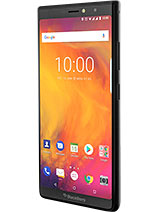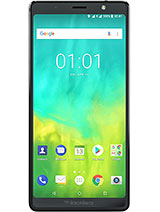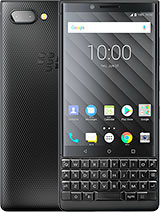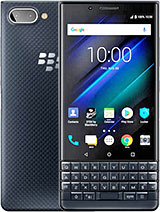Blackberry and the iPhone By Jon Rettinger
This could have been flagship phone of 2020 if it wasn't for this. Yeah, application will be written for the business world. Do you think that rim should be worried, and what is the message for them? Well, you should go. Ask them. I have no idea what they messaged. You are sending them we're not sending them a message: we're sending customers a message and developers a message that we're going to try to serve their needs.
I mean we went around and asked a lot of enterprise customers what they wanted. So did you catch that Steve Jobs, just sealed the fate of blackberry, the iPhone, along with the App Store, is about to vaporize BlackBerry's, most loyal, fan base and Steve. He didn't even bat an eye. We all know the end of the story. Right, it's been told a thousand times the iPhone killed blackberry and changes the course of smartphone history forever.
That's not the whole story. Far from it was actually the iPhone that catapulted blackberry to become one of the top smartphones in the world the years following the launch of the original iPhone, where BlackBerry's best years ever. So. What exactly happened that caused a spectacular fall from grace to answer that question? We actually need to go back to my kitchen, hey guys, I'm John render, with John for Lakers comm here, and I've got an unboxing for you of the BlackBerry Bold 9000, so I first started making YouTube videos, I focused primarily on phone and boxing's, and reviews and Blackberry phones were amongst the most popular at the time. So this is late, 2007 and early 2008, and he had to remember the smartphone landscape was crazy, different back then the iPhone was a shiny, new but insanely expensive and very limited compared to the competition.
There were so many complaints from an avid smartphone users at the time and valid ones. I phoned. Can you record video? The outlook does not look good. It couldn't record video locked to one carrier. It used a super slow edge data network, but chief amongst them was that it lacked something that they had all grown accustomed to physical keyboard, but why? Why were these little tiny buttons and little baby screens so important? The answer might sound a little familiar even today, but it was all about the ecosystem.
Research in motion dominates a small industrial park in Waterloo. Ontario rim is a Canadian, hi-tech, Cinderella story. It invented and manufactures a pager called a blackberry. It's unique feature, a keyboard that allows you to send and receive email, essentially in real time so, research in motion or rim, the company behind the blackberry line, was started in the early 80s by two Canadian college students. A company dabbled in like a bunch of random projects throughout the late 80s and early 90s, including a contract, had them working on early forms of cellular messaging between different devices, so things like pagers, fax machines and even phones, but it wasn't until 1999 we got our first iteration of the and a quote modern Blackberry.
It looked like a pager, and they got its unique name from the black color of the keys on the keyboard, which kind of looked like droplets of the BlackBerry fruit. So rim wanted blackberry to become staple in the modern business world. This would be the real beginning of what would grow to be their empire. So fast-forward, a year later, in 2000 company introduced BlackBerry 9:57 to the world, and it looks way less like a pager and more like a smartphone. It ditched a traditional look of a pager for a secret form factor.
It had a bigger screen and a spacious, QWERTY keyboard and showcased a design that would be used by the company over and over and over for the next ten plus years. Furthermore, it quickly became the device for businesses made by business professionals and for business professionals. They wanted to adapt. The new millennium needs a fleet of BlackBerry's hooked right up on your belt, so as technology rapidly progressed over the years as it tends to do so, did blackberry. The new models emerged with color screens and built-in microphone.
The new models with different form factors that kind of began to take a consistent shape and then came 2005 a year that would cement blackberry in the history books. While consumers were going just crazy over new phone for Motorola called, maybe you've heard of it, the Racer black Bray's about to change the business world forever. Pick yourself in the mid-2000s email is cool and useful, but the world was kind of quickly moving to a more instant messaging style. So blackberry used this and a cool time in history as a jumping-off point. The new messaging service that called probably guessed it blackberry, messenger or BBM.
This is a huge deal in 2005, bringing a new messaging app to all modern BlackBerry devices that allowed its users to inflate communicate from one BlackBerry to another. So because it used data, it wasn't locked in a particular carrier. It offered an early form of read receipts even with delivered and read indicators and blackberry, Agatha service and security as a huge hallmark feature in either starting to sound, familiar yeah. BBM was the iMessage of its time and just as I message brought people to the Apple ecosystem. BBM had users flocking in stores, including myself, to buy and proudly rock a blackberry so by the mid 2000s rim was starting to hit its stride by the end of 2006.
Blackberry accounted for 30% American smartphone market, and that figure was growing fast. BBM was taking off as a de facto messaging service. The company had just introduced their first device hard to get consumers the blackberry, pearl 8100. Everything seems to be looking up for blackberry until this happened every once in a while, a revolutionary product comes along that changes. Everything I mean the iPhone kind of was the anti blackberry.
It kind of went right against everything that Blackberry was standing for. Blackberry was all about the physical keyboard. Apple was all about that on-screen keyboard, so was the definitely different approaches, and obviously it's been kind of famous. You see executives going back laughing at the iPhone announcement. I got that Steve Ballmer video $500 fully subsidized with the plan.
I said that is the most expensive phone in the world, and it doesn't appeal to business customers because it doesn't have a keyboard. So certainly they were onto something I. Think anybody with half a brain could see that the iPhone was going to be something big. It was jarring LY different, and it was a generally different approach. It's not just phones, but how many factors worked at the carriers.
I can just take my fingers and I. Can we call it the pinch? I can bring them closer together and move them further apart to make it bigger or smaller, and so I can just move them further apart and stretch the other way, so I'll see Jobs with dazzling the world demoing the iPhone in San Francisco room executives for watching the televised recaps at corporate headquarters in Canada. So we learned later there were many emotions amongst the execs from shock and awe to disgust and in betrayal. So when singulars CEO took the stage with Steve Jobs to discuss a partnership between the two companies, room executives were totally blindsided. The CEO went on and on about how great the iPhone was, and they were fuming.
So at the time, carriers are not allowing manufacturers to build out full-featured web browsers on their devices amongst a bunch of other restrictions, but it looked like at least to the rim executives at Apple. Did you have to play by the same rules, but in the end and like most execs at the time it is really feels Apple was a serious threat to their business? It thought the iPhone was expensive, it would probably a terrible battery life, and it wouldn't offer the same productivity with its lack of physical keyboard rhythm executives. Couldn't imagine a world where business professionals but choose a slab of fancy glass of the utility packed blackberry, and they said they'd be fine and hindsight I get the sounds like a naive statement, and a rim should have been more worried, but for a while and in all fairness they were totally right. The BlackBerry was chosen over the iPhone over and over again that was just the calm before the storm literally, who says: lightning, never strikes twice: I'm gonna just stop this right there. So in the spring of 2008 rim and Verizon partnered, together to debut their response to the iPhone.
This was long hyped and long-awaited and as a form factor totally different in any kind of blackberry. Before it is launched with a hundred million dollar ad campaign behind it, it was the latest and greatest blackberry phone, and it tried to beat the iPhone in all the wrong ways. We'd put it bluntly, the blackberry storm was an abomination. It was an absolute mess and argued by some, including myself as the biggest disaster in smartphone history. Let that just sink in for a second, although it wasn't that way at first.
So, when the storm initially launched, both Verizon and rim thought they had a home run on their hands. Why wouldn't they? In fact, when initially launched the storm sold over 1 million units in the first two months, based mostly on the reputation of rim and BlackBerry name, but all that started to change, but the tumor started to actually use their shiny new smartphones. So, aside from it missing, features that were standard on the iPhone, just the BlackBerry experience was awful. It was totally inconsistent. Sometimes presses did one thing in one menu in another on another menu.
You didn't know when to push the screen down all the way. Sometimes the screen wouldn't depress or what even register the press, nothing about. It worked. The phone was crashing. There was no multi-touch of port.
The browser, which was really such an important part of the iPhone, was an absolute mess. There was nothing about this phone that was enjoyable even the on-screen keyboard. It was the first time they had done that and BBM was still super important, even typing on. That was a awful experience. There was just nothing that was enjoyed about using that phone.
I realized that very quickly within the first 10 or 15 minutes of trying it. This was not a phone that should have ever been released as it was so the storm wasn't just a tiny misstep. It was a complete and total failure. Virtually all the initial 1 million devices sold were they returned to replace due to various hardware issues. Verizon was furious and demanded rim pay five hundred million dollars cover the lost carrier took on the store.
The two companies eventually came to terms on a hundred million dollar settlement, blackberry, storm repair program and a boatload of free phones for Verizon blackberry walked away with more than just a bruised ego. For the first time ever they had a colossal failure. So despite the storms, missteps blackberry was still on the up-and-up for the next few years. In 2009 a new and improved storm, 2 launched, and it fixed many of their predecessors issues. A company also continued, releasing new versions of its bread-and-butter devices, with physical keyboards and black rickety growing, owning about 20% of the global smartphone market.
That would quickly change despite kind of revisionist history. The iPhone was not the immediate dagger to the blackberries' heart, like most people nowadays assume it was more like the start of a death by a thousand cuts. Every year there was a new iPhone that was obviously a much faster sleeker and more capable than the model before it. The support for enterprise-level tech did eventually come and the biggest threat to blackberry was no longer the iPhones hardware, but it's software. More importantly, this little experiment called the App Store.
Remember when Steve Jobs said we're not sending them a message: we're sending customers a message and developers a message that we're going to try to serve their needs. I mean we went around and asked a lot of enterprise customers what they wanted. This was Apple squaring up and coming after rims core business, consumers were wowed by the iPhone, its ability, but Steve Jobs timed, a new consumer be the easy side. The real challenge would be convincing enterprises to ditch their fleet of BlackBerry's for the iPhone, adding Enterprise Support into the iPhone. Software was a good first step, but the app store was going to be the biggest drama and then right after that, Phil Schiller said this exactly right.
You know this is about addressing what customers want and making the best product ever for enterprise customers, because we listen to them, and we move quickly to make a killer product moving quickly. That was something Apple had done. Since the iPhone launched they slash prices, they offer new storage options, they brought new features year-over-year in software updates rim, on the other hand, was not a company known for moving quickly, and their software was seriously starting to lag behind the competition in 2010. Steve Jobs did something kinda out of the ordinary. He dialed into a shareholders conference call gloated on beating rim, but also offered them some free advice.
We've now passed, rim and I, don't see them catching up with us in the foreseeable future. They must move beyond their area of strength and comfort into the unfamiliar territory of trying to become a software platform. Company I think it's going to be a challenge for them to create a competitive platform and to convince developers to create apps for yet a third software platform after iOS and Android. So having the benefit of hindsight here, Steve was clearly right. It wasn't just the iPhone that RIM had to compete with the smartphone landscape was changing fast Google's Android had now entered the game, offering a whole new level of customization in the feature set that a ton of consumers had really been waiting for compared to iOS and Android BlackBerry OS, looked old, stale and very out of touch with the new tech reality and then came the day that would ultimately seal BlackBerry's fate.
Now, and this is the day a lot of people have been waiting for. The iPhone is finally coming to another network. Verizon's customers expected to at some point. We lined up today to get their new toy news.8's Kent Pierce, probably one of the worst kept secrets in tech, but in 2011 the iPhone came to Verizon and blackberry was rapidly losing its dominance. All the initial criticism, the iPhones poor battery life, lack of enterprise, software support and care and compatibility was over.
The iPhone is getting into the hands of more and more consumers. Thanks to the new CDMA, carry support and blackberry just couldn't keep up, and it wasn't just consumers, business customers, BlackBerry's, most loyal customer base, we're also leaving in droves. Users had become accustomed to the virtual keyboard and had a full browser. A better email experience and this new service called iMessage look like could be a real threat to BBM, which was quickly becoming no longer the big draw. It once was to the BlackBerry ecosystem.
So and then, just a year later, in 2012, the BlackBerry market share, the company was so proud of drop significantly so remember they had a 20% market share in 2009 and just three years later, captured under 5% of the global smartphone market. The next few years be dark time for blackberry. There'd, be some big layoffs, a failed experimental tablet. Corporate restructuring and a Hail Mary plan to get the BlackBerry name back on track, so my beloved has fallen on hard times, but now it's trying to fight its way back at an event. Today, the research and motion team launched what they hope is a massive comeback, and there were some big announcements meet the BlackBerry z10.
It was a new high-end phone that ran the all new BlackBerry OS 10. The hardware was generally well-received, but the software was still majorly lacking, but the bigger issue with the z10 was a lack of any real third-party app support. The company had promised 70,000 third-party apps would be available on BlackBerry OS 10. Most of them were simply junk, so, instead of just opting to develop the phone around Android rim, which had just changed official company name to blackberry, an effort to show its commitment to the brand opted to rebuild from the ground up around the ANX operating system, so device to say developers weren't flocking to develop for it, especially when iOS and Android had a much more active and well-established user basis. Initially, analysts were optimistic at first predicting blackberry would still sell nearly two million Z tens globally back to the phone was released in the reviews at the web.
That figure dropped to just below 300,000, and I'm sure. You know where the story goes from here. Blackberry made a few more attempts to revive the brand for their most loyal customers, introduced a blackberry Passport, this little square phone and the classic both for the infamous physical QWERTY keyboard. But without the app support consumers had come to expect the phones just didn't take off. Eventually the company, a banded BB OS 10, together launching the BlackBerry Drive in 2015 finally Rainier Android, but by then, despite the proving a pretty solid phone, it was too little too late.
Things changed in 2016 blackberry announced they would no longer be making their own phones instead, licensing the rights to TCL to design and manufacture new phones. The BlackBerry name attached to it company was instead going to focus its efforts on its software and services for enterprise customers and just let TCL handle the phone side of the business. TCL did their best to bring blackberry back to its glory days and, to their credit, the key one and key two were pretty good phones, but despite their best efforts, the phones just didn't, sell that well and a 2017 blackberry, officially owned 0% the smartphone market. It's sad to talk and think about blackberry. This way, a company that was so important in my consumer electronics life and was so prevalent all over the world too, just missed the mark so completely and so physically we're looking back, there's, obviously the benefit of hindsight.
They should have done this. They should have done that, of course, these actors, at that time thought they were doing the right thing, but, having the benefit of the lens of time, you can really see the huge mistakes that were made, and you wonder if blackberry had adapted quicker. What would the brand be today I've tried to release. You know the new BlackBerry 10 that sort of could sort of run, Android apps they had just embraced Android and put their own flavor on top of Android really early, but black/gray be a huge player. Now.
Could he be competing with the Samsung's of the world? One plus I think a lot of ways they could. The story of blackberry is the story of a company stuck in its ways, unwilling to innovate, changed with the world around them. Rim executives didn't take the iPhone seriously, they laughed it off and didn't choose to compete and innovate. That decision ultimately cost them everything and, as a smartphone world, rapidly changed the BlackBerry didn't change with it and when rim finally decided to compete with the iPhone on its own timetable, it was far too late. They lost, and I don't see a way they could ever come back.
You.
Source : Jon Rettinger


















![Redmi Note 9T Unboxing - [Hot Redmi phone this 2021]](https://img.youtube.com/vi/YElfSFDLDx4/maxresdefault.jpg )









